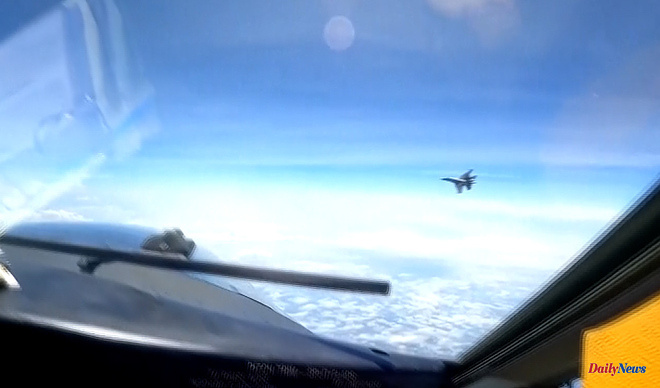Several air incidents between Chinese and US military planes over the South China Sea have heightened tensions between the two superpowers, whose relations are strained over differences over Taiwan and the detection of a suspected Chinese spy balloon shot down after flying over the United States earlier this year.
The Pentagon said on Tuesday that a Chinese fighter pilot carried out an "unnecessarily aggressive maneuver" last Friday, May 26, near a US surveillance plane that was flying over the South China Sea.
"The Chinese pilot made a dangerous maneuver by getting too close to the plane," Blinken insisted on Wednesday. "And in recent months there have been similar actions not only with us but with other countries as well," he added.
In a video made public, a Chinese fighter jet is seen passing in front of the US aircraft, which is buffeted by turbulence. The Indo-Pacific Command (INDOPACOM) of the United States detailed that a Chinese plane "flew directly ahead", less than 120 meters from an American RC-135, leaving it at the mercy of a series of turbulence.
"The RC-135 was conducting safe and routine operations over the South China Sea in international airspace, in accordance with international law," the US military said.
For its part, the Chinese government on Wednesday denounced a "provocation" by the United States, after an incident last week between a Chinese fighter and a US military surveillance plane over the South China Sea.
"An American RC-135 reconnaissance plane deliberately broke into our training area," Chinese military spokesman Zhang Nandong said in a statement, adding that Beijing had to send planes in response to follow and monitor the US aircraft.
"These provocative and dangerous maneuvers are the source of maritime security problems," said Mao Ning, a spokeswoman for the Chinese Ministry of Foreign Affairs, who urged the United States to "immediately cease these dangerous provocations."
According to the criteria of The Trust Project












